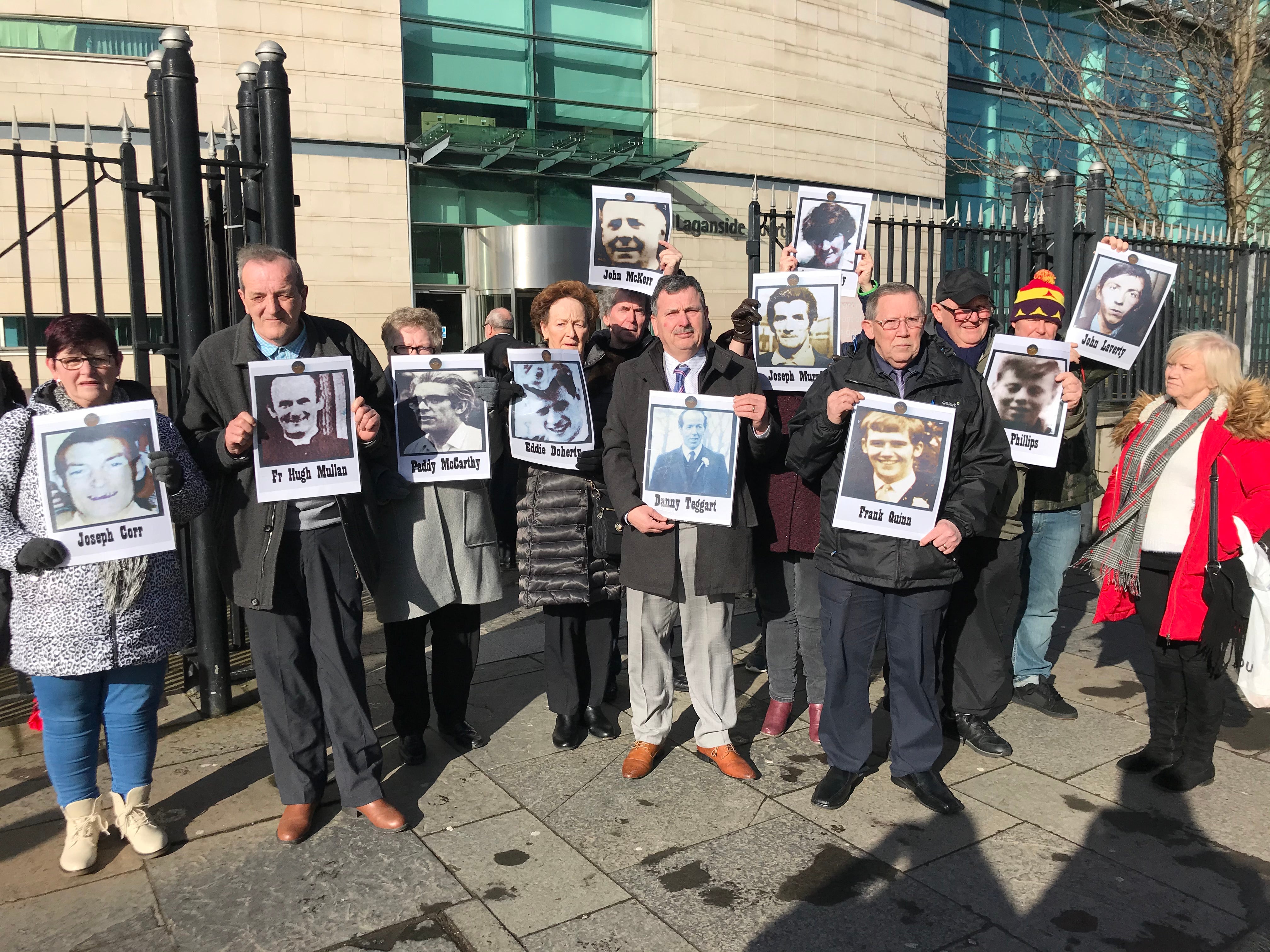Ballymurphy inquest: Coroner to publish findings into Belfast army shootings
Catholic priest and mother of eight among those killed

Your support helps us to tell the story
From reproductive rights to climate change to Big Tech, The Independent is on the ground when the story is developing. Whether it's investigating the financials of Elon Musk's pro-Trump PAC or producing our latest documentary, 'The A Word', which shines a light on the American women fighting for reproductive rights, we know how important it is to parse out the facts from the messaging.
At such a critical moment in US history, we need reporters on the ground. Your donation allows us to keep sending journalists to speak to both sides of the story.
The Independent is trusted by Americans across the entire political spectrum. And unlike many other quality news outlets, we choose not to lock Americans out of our reporting and analysis with paywalls. We believe quality journalism should be available to everyone, paid for by those who can afford it.
Your support makes all the difference.A coroner is to publish her findings into the deaths of 10 people who were shot and killed in disputed circumstances involving the Army in west Belfast nearly 50 years ago.
The shootings, known locally as the Ballymurphy Massacre, happened between 9 to 11 August 1971 as internment was introduced in Northern Ireland - a practice where paramilitary suspects were held indefinitely without trial.
Among those killed were a mother of eight and a Catholic priest.
The victims were: Joan Connolly, 44, Father Hugh Mullan, 38, Joseph Corr, 43, Edward Doherty, 31, John Laverty, 20, John McKerr, 49, Joseph Murray, 41, Noel Phillips, 19, Frank Quinn, 19. and Daniel Teggart, 44.
The families of the deceased say they were unarmed civilians who were shot by the army's parachute regiment without justification.
Army veterans have said they came under sustained attack as violence erupted on 9 August when soldiers moved into republican strongholds to arrest IRA suspects.
Original inquests into the Ballymurphy deaths in 1972 returned open verdicts and no one has ever been charged or convicted in connection with the shootings.
After the initial inquest, the bereaved families began a long campaign for fresh probes to be held. New inquests began in 2018, with the final oral evidence heard last March.
The inquest has heard more than 100 days of evidence from over 100 witnesses, with 60 British soldiers and 30 civilians among them.
The coroner, Ms Justice Siobhan Keegan, will deliver her findings at the International Conference Centre Belfast (ICC) and it is expected that proceedings could take up to two hours.
Relatives took part in a church service on Monday ahead of the findings and described their feeling that Tuesday will be a hard and anxious day.
Briege Voyle said the pain of losing her mother, Joan Connolly, was made even harder when misinformation was circulated that she had been a gunwoman.
Ms Voyle told the PA news agency that she is praying Ms Connolly's name will finally be cleared on the official record five decades later.
Father Hugh Mullan was shot after he had crawled to waste ground where a man had been shot to administer the Last Rites.
His brother, Patsy, described him as simply wanting to help people.
"My brother was not involved in anything other than going out to help somebody," he said.
"He was a priest and anointed a man; as he left him to go and try and get an ambulance he was shot."
The findings are due on a day that an intention by the UK government to ban future prosecutions of British soldiers who served in Northern Ireland is expected to be outlined in the Queen's Speech.
It has been reported that the move will also apply to former paramilitaries.
Troubles victims and politicians across Ireland voiced anger at the expected move last week when it was reported in the Daily Telegraph and The Times.
Additional reporting by PA
Join our commenting forum
Join thought-provoking conversations, follow other Independent readers and see their replies
Comments